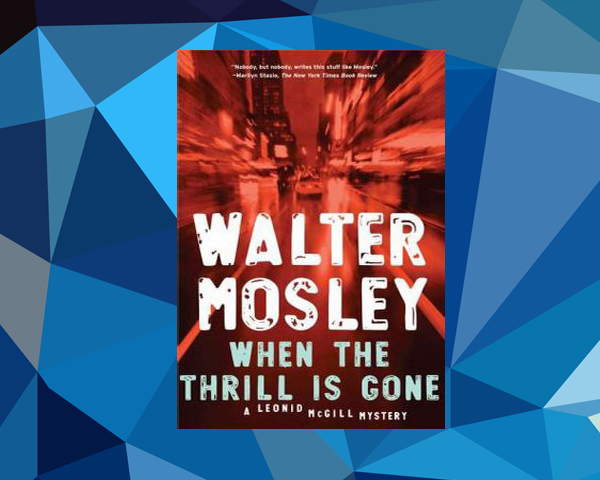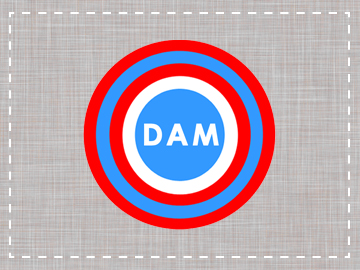When The Thrill is Gone
Book Review
Review by Todd Natti
Before we begin, I must admit that my only exposure to Walter Mosley’s writing has been the Leonid McGill series. I have not delved into the Easy Rawlins series or his other works and, well, I don’t plan to. Let me explain: this is not because I do not care for Mosley’s writing. On the contrary, I feel there is a subtle brilliance to his McGill books, as there is in any good detective fiction, from its forefathers Raymond Chandler and Dashiell Hammett to inheritors like Dennis Lehane and Henning Mankell. I would actually take it one further and say that I am enamored with the style that Mosley employs in the first person narration of Leonid McGill – a black, middle-aged private investigator with a dark history and complicated family life – and I don’t want it spoiled by reading those other works. Sure, I may enjoy those other books immensely, but I fear that they may take away some of the magic captured in Mosley’s newest series.
The Leonid McGill books began back in 2009 with the release of The Long Fall, in which Mosley introduced us to the series’ detective in a complex mystery that offered very little in terms of exposition about its protagonist. While in many series this would have been an ill-advised way to open, Mosley made it work by having any background information offered organically, as part of the story and not an aside to fill the reader in. This continued in 2010’s Known to Evil, which surpassed The Long Fall in every way a good second entry into a series should. Mosley presented a fast-paced, head scratcher of a mystery and paired it with an influx of organic exposition.
It’s a trend he continues in When the Thrill is Gone, released last month by Riverhead Books. Taking place a few months after Known to Evil, the newest entry in what will hopefully be a long series begins with a tradition noir detective plot device: the lone woman afraid for her life. It seems her husband’s two previous wives ended up in the morgue under strange circumstances and she’ll soon suffer the same fate. McGill, suspecting that the woman isn’t telling the whole tale (are they ever in detective fiction?) and wanting to keep his business afloat in the struggling economy, takes the case. It won’t be the only one, either, as one of the most coldblooded mobsters in America calls on the detective as well, asking him to find an old friend.
To delve any more into the plot would be spoiling and spoilers should only be reserved for serial television shows and bad films or books. When the Thrill is Gone is none of those things. Is it as fast-paced as the previous entries in the series? No, but it doesn’t need to be. Any good book series should vary in tone and style with each successive book, creating a believable world with ebbs and flows instead of the “something is always happening and it’s happening right now!” mentality that populates Lee Child novels and any police procedural script on television today. Mosley brings McGill’s New York City to life in a methodical and (dare I say it again?) organic way. Stories outside of McGill’s world don’t matter; for information on what is happening with other characters we have to rely on McGill’s skills of detection. It makes for an unreliable narrator that the reader trusts completely. If something isn’t the way McGill originally thought, it’s not that he was pulling the wool over our eyes, but because he just didn’t know. For some readers of detective fiction, this can be frustrating, as they want all the pieces to fall into place perfectly, like Poirot summing up a case at the end of a Christie novel. However, that won’t be many readers main source of contention.
Readers who are fans of books with interlocking stories are going to be frustrated with how Mosley handles concurrent plots as they don’t always come together. While there are many simultaneous mysteries propelling the plot, the only thing they ever have in common is McGill himself. In the age of interconnectivity, where films like Crash wins best picture with their hyper-intense representation of Stanley Milgram’s small world experiment, it is nice to have separate stories that remain separate. Will this, as suggested, aggravate some readers? No doubt. What those readers need to realize, though, is that by presenting these plots in their insular ways, Mosley creates a fictional world more akin to our own. While similarities between unrelated events may exist, they are nothing more than what they first appear to be. Sure, one event may offer insight into another, but at the end of the day the two do not meet. It’s very refreshing. Happenstance can only go so far.
Another interesting thing about the McGill books is that the title reflects the tone of the story. The Long Fall did feel like we were falling both into McGill’s life and with the plot that dragged the detective deeper and deeper into the mystery. Known to Evil was a harder-edged book than its predecessor, showing that McGill’s past choices and deeds can come back to haunt him (something he is already aware of, the books have a philosophical leaning to them, which makes the text all the more enjoyable). When the Thrill is Gone continues this tradition, offering a tale where a private detective must take any job offered to keep his business afloat, even if his reasons for staying in this line of work have become murky as of late. It’s pleasing that Mosley puts thought into his titles, whereas many series just tack on cliches or puns to clue in readers that the novel they have picked up is part of the same series.
In the end, When the Thrill is Gone is a fine addition to the McGill books. Does the ending come up a little too fast? Maybe. Are there moments that the book leans away from organic storytelling and deliberately sets up plot points for future books? Sure. Do either of these take away from Mosley’s ability to craft an involving mystery and populate it with beautiful, simple language. Nope. Instead, they leave readers (well, this reader at least), only craving more.
Close

